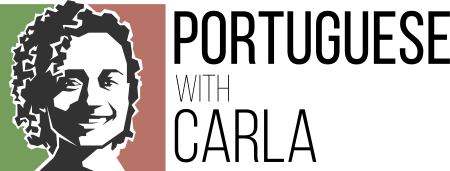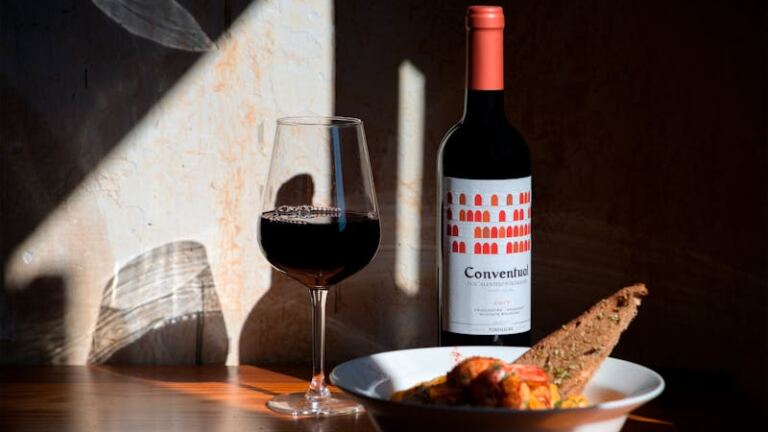The Origin of The Portuguese Language – Part 2
There is no country where you won’t find Portuguese speakers. After all, it is a recognized international communication language. Yet, most people have no idea where the tongue came from and how it evolved.
In the first part of this series, you started exploring the origin of the Portuguese language. You discovered more about its meaning and significance as one of the most spoken languages today. You also learned about the efforts to standardize it in the 20th century and the impact of the printing press.
During the Portuguese Discoveries Era, the language spread. The Portuguese colonial administration and trade were responsible for turning it into a lingua franca. It reached today’s South American and Portuguese-speaking African countries. At the time, it was such a widely spoken language that many languages and dialects today still include Portuguese words. But what happened before all that?
In this post, look further back in time, before the notion of Portuguese-speaking countries even existed. Explore the relationship between the languages spoken in the Western Iberian Peninsula. Additionally, understand what makes Portuguese different from other European languages.
Uncovering The History Of Portuguese Backwards
Would you like to learn European Portuguese? We’ve got you! Discover The Journey, a language course like no other. Dive into an immersive experience that will teach you to speak Portuguese as the natives do!
The complete history of the Portuguese language is unknown. Like other languages spoken around the world, it resulted from numerous influences. Unpredictable changes molded the spoken language. In turn, these modifications were later reflected in its written forms, originating the Romance language we know today. Start from the point at which the language spoken in Portugal became a national language.
Portuguese as an Official Language
Portugal became an independent kingdom in 1149, making it one of the oldest countries in Europe. Shortly after, in 1290, King Denis, or Rei D. Dinis, created the first Portuguese university in Lisbon. He also established Portuguese as the official language for royal documents. He believed royal documents should use the same language spoken by the people.
This language was Galician Portuguese. There were many variations throughout the territory, but the one used by the court became the most prestigious. However, on either side of the new-founded border, there was little distinction between the language spoken.
Only later, as they evolved in oral and written forms, did the languages in Portugal and Spain slowly part ways. Regardless, Galician and Portuguese are close. Experts consider them sister languages, and their speakers can easily understand each other.
Galician Portuguese: The Formation of a Distinct Identity
By the beginning of the 1st millennium CE, there were several languages in the Iberian Peninsula. The one spoken in the region we now know as Northern and Central Portugal later originated the Portuguese spoken by the natives today.
In reality, there was no clear point of separation between Galician and Portuguese. Thus, the language spoken during that late Medieval era is what experts call Galician-Portuguese today. It was mostly Latin-based. Yet, it had characteristics from Arabic and influences from other tongues and local dialects.
A Note on Mirandese
Despite its proximity to Galicia, Portugal’s two official languages are Portuguese and Mirandese. This last one derived from Asturian, another Spanish language, is still spoken in the Northeast corner of Portugal.
Along with Galician, Asturian was one of the main languages in the peninsula. It continued evolving but fell under the pressure of Castilian Spanish and Catalan. Today, Asturian is recognized as cultural patrimony. However, its speakers are but a few hundred thousand.
Arabic Influence and Mozarabic Dialects
Portuguese and Spanish suffered an influence that most other Romance languages didn’t – the one of Arabic. The Iberian Peninsula was under Muslim control for almost eight centuries. The conquest started in 711 and quickly spread to most of the territory, which gained the name of Al-Andalus.
Most of what is Portugal today and part of Spain was named Gharb Al-Andalus (West of Al-Andalus). The Southern region of Portugal, the Algarve, derives its name from this Arabic term.
Curiously, the language spoken in the Southern regions always differed from the one spoken in the Central and Northern areas. The Arabic influence was more noticeable, leading to the creation of the term Moçárabe (Mozarabic) to describe the dialects spoken in those regions.
The Muslim dominium over the Iberian Peninsula lasted until 1492. It ended with the conquest of the last Muslim city, Granada, by the Catholic kings of Castile. At the time, the base of both these Romance tongues was already the Latin language. Still, both Spanish and Portuguese reflect evidence of this ruling period.
The Evidence of Muslim Rule in Iberian Languages Today
The Spanish lexicon includes about 4000 words of Arabic origin. Additionally, the pronunciation of Andalusian Spanish has some sounds that reveal the Muslim influence. The Portuguese language also conserves some aspects of Arabic origin. For example, the prefix al-, an Arabic article, appears in words like Almofada (Pillow), Alface (Lettuce), and Alfazema (Lavender).
Romance Languages Emergence
Romance languages came from the Latin spoken throughout the Roman Empire. They include Portuguese, Spanish, French, Romanian, and Italian. The Romans conquered the Iberian Peninsula between the 3rd and 1st centuries Before the Common Era (BCE).
Their legacy is still present today. You see it in the roads and other structures they built, the cities they founded, and in the Portuguese language. For example, you will find in Évora a Roman temple dating back to the 1st century CE. The Vulgar Latin spoken by the Roman soldiers replaced most local dialects and languages. However, these local languages influenced the way natives learned and spoke Latin.
Evora, by Patrick Nouhailler, licensed under CC BY-SA 2.0 Deed
After the retreat of the Romans, the Iberian peninsula was invaded. First came the Vandals, Sueves, and Alans. Later, the Visigoths arrived in the 5th century, sent by Roman Emperor Onorio. Yet, none of those people heavily influenced the local languages as Latin had.
The influence of languages spoken before and other tongues in each territory shaped the Latin dialects into becoming new languages. Classical Latin continued being applied to writing for centuries. But as kingdoms assumed popular languages as their own, it began losing power and giving way to its transformed variants.
Pre-Roman Period: The Foundations Of Portuguese
Before the Roman conquest, languages spoken in what is Portuguese territory today were probably Celtiberian. South of the Douro and in some of Spain, there was the Lusitanian, a tongue little known to this day.

The family of languages spoken over most of Europe and Asia as far as northern India is called Indo-European. It encompasses about half of the world’s population today. Its ten main branches are divided into Western and Eastern and split into subfamilies:
- Anatolian
- Albanian
- Armenian
- Balto-Slavic
- Celtic
- Greek
- Germanic
- Indo-Iranian
- Italic
- and Tocharian
These branches evolved and influenced each other, originating different tongues that evolved. Today, about 445 living languages are part of the Indo-European family, including European Portuguese.
Going back thousands of years, you will find the Proto-Indo-European. This hypothetical language probably originated in most European and some Middle Eastern languages. Because no writing remains of the language, the information available about it is scarce and results from studies and comparisons.
As you have seen, European Portuguese is an incredible language with an exciting history. Come and learn it with The Journey! This unique gamified experience will keep you motivated to learn. You will acquire a new language and boost your confidence to interact with native speakers. Get your 7-day free trial now!
Learn European Portuguese the Instinctive Way!
For the last decade, we’ve been working on putting together the best possible European Portuguese course. After much research, feedback from our students, and several iterations, we think we’ve got it! 😉
At the base of it all is a sound conviction that languages are better learned instinctively, so the process needs to engaging, varied, and enjoyable. Throughout, we used scientifically proven techniques to help you master pronunciation, phrase construction, oral understanding, grammar, and all the necessary bits to get you to fluency. And still, the whole thing is presented as an adventure. It’s a course like no other, trust us!
Resuming The Origin of The Portuguese Language
In this latest series, you have explored the origin of the Portuguese language. You started by understanding its significance in today’s world and traveled back in time to discover its rich history. You know how the language reached South America, which led to the rise of the European and Brazilian Portuguese variants. You also explored the influences that shaped this Romance language.
Still, the history of a living language is never over. Languages are constantly changing and evolving. The natives will speak differently a few hundred years from now, and the Portuguese language will differ from the one you know today. Likewise, the way natives spoke 100 or 200 years ago was different from how they do now.
One of our favorite authors is an expert in European Portuguese. His name is Marco Neves, and he has written several incredible books on the complex subject of language and language history. Visit his website. Additionally, you can watch our exclusive interview with him: Interview with a Portuguese Expert.
What surprised you the most about the history of the Portuguese language? Do you know any interesting facts that were not mentioned in this series? Share them with us below! We would love to hear your thoughts and insights on the origin of Portuguese!











Muito interessante, no entanto, com dois erros evidentes:
– a queda de Granada deu-se em 1492 e não em 1494
– o Aqueduto das Àguas livres, do qual se inclui uma fotografia, foi construido no Sec. XVIII durante o reinado de D. João V e data de 1713. Portanto não ê romano…
Olá Manuel!
Agradecemos sinceramente o seu comentário e as suas correções. Verificamos todo o texto e as informações, mas, de vez em quando, escapa alguma coisa.
Já fizemos as alterações necessárias.
Muito obrigada por nos ajudar a tornar este artigo mais exato e informativo para todos os leitores!